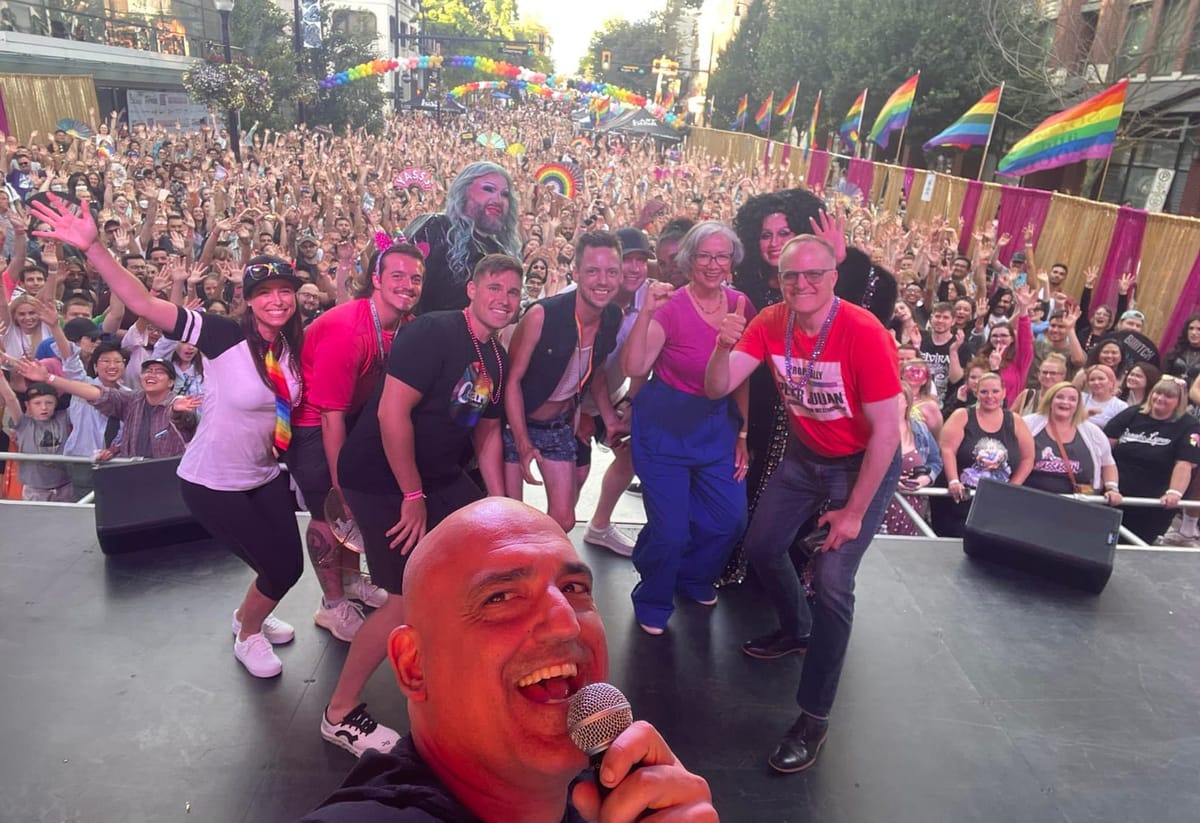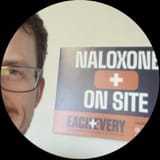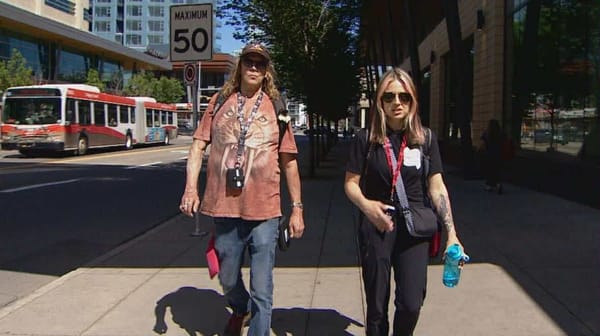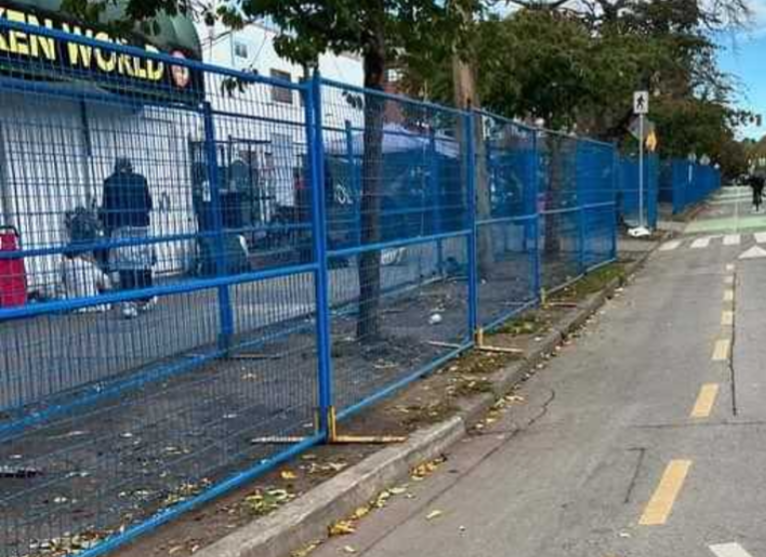Last Door's recovery bid
On June 12, Last Door Recovery Society issued a statement in response to the charges laid against a longtime employee or contractor at the facility. To many, it felt like gaslighting.

As always, this piece reflects my personal observations. As painful as it is to know friends have been harmed by a program that was supposed to help them, seeing them re-traumatized by the same program deflecting responsibility is infuriating. I take care to temper my views as I review the statement issued by Last Door, but my personal bias will undoubtedly spill onto this page.
At the same time, I am consolidating information from disparate sources during a moment of flux. The situation with Last Door is rapidly evolving, so I recommend keeping an eye on responses to Last Door and Giuseppe Ganci’s Twitter feeds or other social media.
Content warning: discussions of sexual assault
Last Door Recovery Society has been working with lawyers since February or earlier. I found this out when Last Door’s Director of Community Development Giuseppe Ganci called AAWEAR staff after they questioned the Alberta Recovery Conference, which they were set to attend and for which Ganci serves as Chair. He made sure to mention Last Door’s lawyers when he emphasized the “bullying” they were experiencing at the hands of the sexual assault plaintiffs and their allies.
So it comes as no surprise that Last Door held its tongue about the sexual assault allegations until charges were brought forth on counts of sexual assault by three out of eleven women who made complaints to the police. Their statement, entitled “A Message from Last Door Recovery Society: Accountability, Transparency, and Healing” was issued the evening of June 12. We’ll get to that shortly.
Briefly, a quick organizational structure: The staff and board of directors at Last Door can be viewed here. Last Door’s Executive Director is Jared Nilsson. Its Director of Community Development is Giuseppe Ganci. The founder of Last Door is David Pavlus, who is now retired. All three of these men spoke recently at the Alberta Recovery Conference in February, which Ganci chairs and is the primary contact.
Ganci and Nilsson are named as the “senior leadership” alleged to have attempted to silence sexual assault accusations using Facebook’s bullying and harassment channels.
These discussions should centre on the victims of the assaults: as public reporting goes, they were all clients at Westminster House, a women-only facility aligned closely with Last Door. However, within the Facebook group are many more stories from outside Westminster House and even outside New Westminster’s recovery community. Some of these people may not feel safe coming forward legally because of vulnerabilities they experience even in the absence of police scrutiny.
We don’t know how many affected women resumed drug use, overdosed or died as a result of these assaults. We don’t know how many are living on the edge of survival as a result of these assaults or as fallout from the current discussions.
And while “Recovery is Possible,” it’s made nearly impossible when people are subjected to trauma by the institutions purporting to help them.
Last Door breaks its silence
The statement by Last Door, likely drafted by its lawyers, opens with a long “trigger warning” about sexual assault. It sets a tone of caring and compassion for the survivors as well as community obligation that Last Door asserts it takes seriously. The warning also establishes that only a tiny fraction of sexual assault cases are typically reported to police. It’s unclear whether Last Door is hinting that Adam Haber assaulted many more people than the eleven women who came forward, but this would be consistent with rumours.
The statement is long and full of fluffy messaging that serves to shore up Last Door’s “long-standing commitment to recovery and healing,” but it contains deflections and misdirections that merit centralizing.
First, Last Door states repeatedly that “no Last Door clients were implicated in these allegations.” In fact, the Vancouver Sun reported in February that “Adam Haber has been involved with Last Door since he graduated from treatment there in 2010” (emphasis mine) — indicating that a client of Last Door is not only implicated but central to this story.
In the third paragraph of the statement, Last Door asserts that on January 19, 2023, “Within 24 hours of learning about [the allegations], [Last Door] took decisive action….[Last Door] also reported the information…to police resulting in report NW23-1607, launching the investigation.” This reads as though within 24 hours of learning about the allegations, Last Door took action to help launch the investigation. In fact, the statement’s timeline shows clearly that Last Door did not approach police until January 30, 2023.

The statement declares that “these charges are not related to any harm inflicted upon our clients or misconduct within our facilities or services.” This appears to deflect the allegations, which were made to the effect that Adam Haber accessed his alleged victims through his activities at Last Door:
“Mr. Haber’s employment put him in direct contact with people who were in a vulnerable stage in their lives, that definitely gives him access to numerous victims that are going through recovery. That behaviour is alarming” -Sgt. Andrew Leaver, New Westminster Police, speaking to Global Vancouver
The statement also clarifies that Last Door terminated Adam Haber’s contract on January 20, 2023 — one day after learning about the allegations. At this point, Haber was Last Door’s fitness contractor “mostly at a public fitness center on an average of four-hours per week.” This seems to paper over the degree of Haber’s employment at Last Door and his physical presence onsite. Given Sgt. Leaver’s statement that Haber accessed his victims through Last Door, what is meant by “mostly at a public fitness center”? Did Haber conduct fitness activities at Last Door?
And despite his four hours per week at the moment of termination, how frequently did Haber work at Last Door prior to this immediate window of termination?
This latter point is important given Last Door’s subsequent assertion: “To our understanding, the charges laid by the New Westminster Police are from 2012 and 2013, preceding his engagement with our organization.” Do the other eight allegations that were brought to police extend this timeframe? Is Last Door aware of other allegations that weren’t brought to police?
The statement dissects Giuseppe Ganci’s text message conversation with a whistleblowing staff member who “chose to air grievances in a public forum, rather than through established channels of communication fostered over eight years of a trusted friendship.” This entire section of the statement feels like a complete misdirection from the sexual assaults. In what world should Ganci be owed a “heads-up” on these allegations, simply because of a ‘friendship’ likely built through a power imbalance?
Finally, the statement goes on at length about a detail in the timeline within CBC reporting that was corrected after Last Door brought it to their attention:
A previous version of this story had the headline, “B.C. recovery home staff knew of assault claims against employee 1 month before telling police, posts say.” The story stated that Last Door deleted a comment raising allegations about Haber made on Dec. 17, 2022, due to an incomplete screenshot. In fact, the comment was made on Jan. 19, 2023, according to additional screenshots provided by Last Door.
While this seems to fall within the scope of the ongoing war against the CBC by conservative political interests (keeping in mind the more than $1.3 million issued in sole-source contracts to Last Door by the Alberta UCP), it just feels inappropriate while the central point remains unaddressed: that Last Door created an environment of power disparity so deep that at least one person was able to carry out many sexual assaults over years with impunity.
This part, rather than Last Door’s disheartening attempts to shore up its client base, deserves the public’s attention because of the likelihood that this is a systemic issue within ‘addiction treatment.’ We recently heard of a parallel situation in Calgary, where a minor was sexually assaulted while in adolescent care. New Hampshire Public Radio’s 13th Step has documented similar outcomes in the United States.
Last Door owes it to the victims to sit down, stop deflecting and support efforts to figure out how this entire system can be reconfigured to regain some control. Isn’t that what recovery is supposed to be about?





